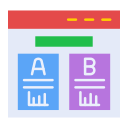Comparing Online IT Certificates: Which Is Right for You?
Today’s theme: Comparing Online IT Certificates: Which Is Right for You? Let’s cut through the noise with warm guidance, real stories, and practical criteria so you can choose confidently, learn efficiently, and land roles that feel like a natural next step. Share your goals—your future self will thank you.

How to Compare Certificates Without Getting Overwhelmed
01
Begin with your destination
Pick a target role first—help desk technician, cloud support associate, junior security analyst, or data analyst—and evaluate each certificate by how directly its objectives map to that job’s daily tasks. Post your target role in the comments, and we’ll suggest three focused certificate options.
02
Syllabus depth and exam alignment
Compare detailed objectives, not marketing blurbs. Do practice labs mirror real tooling? Are exam items scenario-based or rote recall? Look for alignment with frameworks like NICE or SFIA where relevant. Ask providers for sample lessons and a full syllabus PDF before you commit.
03
Signals employers actually notice
Recognized names matter, but proof of skill matters more. Favor certificates that include hands-on labs, a graded capstone, or a verified badge you can link on LinkedIn. Search job postings to see whether the certificate appears by name and note how often it’s listed as preferred.



Time, Cost, and ROI: Doing the Math That Matters
Realistic timelines for busy lives
Expect 80–120 hours for a foundational certificate if you’re new, and 40–80 hours if you’re upskilling adjacent skills. Protect a small daily habit—forty focused minutes beats weekend marathons. Share your weekly availability below, and we’ll suggest a feasible timeline.


Budgeting beyond the sticker price
Include exam fees, retake policies, labs or cloud credits, practice tests, and extensions. Watch for student discounts and community vouchers. Marcus saved $120 by using a public library’s virtual lab environment and passed AWS Cloud Practitioner in six weeks of structured practice.
Learning Experience: Self-Paced, Cohort, or Bootcamp?
Asynchronous courses shine when you can carve reliable time and love replayable lectures. Ensure quizzes include explanations and labs are auto-graded. Set public milestones—comment your exam date here for accountability—and schedule weekly check-ins with a study buddy.
Portfolio, Labs, and Projects: Show What You Can Do
Look for capstones, scenario-based labs, or graded tickets that mirror on-the-job tasks. Export artifacts to GitHub or a public portfolio. Even a simple documentation write-up—what broke, how you diagnosed it, and why your fix worked—signals mature problem-solving.
Portfolio, Labs, and Projects: Show What You Can Do
Frame each project with context, constraints, and results. “Configured a secure VPC with network ACLs and CloudWatch alarms” beats “Did a cloud lab.” Use screenshots, architecture diagrams, and brief postmortems. Invite readers to comment, and we’ll give quick feedback suggestions.
Portfolio, Labs, and Projects: Show What You Can Do
Evidence of ownership, reproducibility, and learning curve. Can someone follow your README and replicate results? Did you explain trade-offs? Certificates verify exposure, but a crisp project narrative proves you can think, build, and communicate under realistic conditions.
Mapping Certificates to Real Roles
Entry-level pathways
Help Desk: A+ plus a ticketing-lab project. Junior Network Tech: Network+ with home lab configs. Cloud Support: Cloud Practitioner or Azure Fundamentals plus a cost-optimized deployment demo. Comment your target role, and we’ll suggest a three-step plan with resources.
Specialize thoughtfully at mid-level
Security Analyst: Security+ or SSCP with SIEM labs. Admin/Engineer: AWS Associate, Azure Administrator, or Cisco CCNA with automation basics. Data Analyst: Google Data Analytics or Microsoft PL-300 with dashboard storytelling. Match certificates to recurring tasks, not buzzwords.
Career switching from non-tech
Leverage your past. A teacher moving to IT can target instructional support roles with M365 and A+; a finance pro can pivot to cloud FinOps with AWS Practitioner plus cost governance projects. Your background is an advantage when certificates amplify existing strengths.
Join our mailing list
